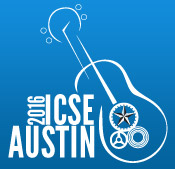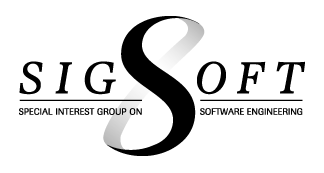
Software Engineering in Practice (SEIP) Track
The Software Engineering in Practice (SEIP) Track is the premier venue for researchers and practitioners to discuss innovations and solutions to concrete software engineering problems. SEIP provides a unique forum for networking, exchanging new ideas, fostering innovations, and forging long-term collaborations for addressing the most interesting software engineering research directions. Following its tradition, SEIP will gather highly-qualified industrial and research participants that are eager to communicate and share common interests in software engineering. The track will be composed of invited talks, paper presentations, and panel discussions with a strong focus on software engineering practitioners.
Submissions
All papers and proposals must be submitted electronically through the online submission site, https://easychair.org/conferences/?conf=icse16seip.
We are seeking the following types of submissions. All submissions have to be written exclusively in English.
Experience report and case studies papers (10 pages): Each paper should provide clear take-away value by describing the context of a problem of practical importance; discussing why the solution of the problem is innovative, effective, or efficient; providing a concise explanation of the approach, techniques, and methodologies employed; and explaining the best practices that emerged, tools developed, and/or software processes involved. Furthermore, papers should describe broader applicability; an overall assessment of benefits, risks and mitigations; and other lessons learned. Experience reports and case studies may be up to ten pages in length (including figures, tables, appendices, figures, and references).
Accepted papers will be included in the ICSE 2016 Companion Proceedings. IEEE Software will recognize the best paper of the SEIP track with an award at the conference.
Panel proposals (2 pages): We solicit panel proposals on topics that are likely to be relevant and of interest to industrial attendees. Each proposal should describe the topic to be discussed, argue why the topic is timely and of interest, and identify an initial panel membership with associated bios of identified panelists. Panel proposals may be up to two pages in length (including figures, tables, appendices, figures, and references).
Each accepted panel will be allowed two pages in the ICSE 2016 Companion Proceedings.
Proceedings publication date: The official publication date of the ICSE 2016 Companion Proceedings is the date the proceedings are made available in the ACM Digital Library. This date may be up to two weeks prior to the first day of the conference. The official publication date affects the deadline for any patent filings related to published work.
Evaluation
All submissions will be reviewed by members of the Software Engineering in Practice Program Committee. Submissions must not have been previously published or concurrently submitted elsewhere. Submissions will be evaluated on the basis of practicality to industry, originality, significance of contribution, applicability, quality of presentation, and discussion to related work.
Important Dates
- Submissions Due: October 23, 2015
- Notification of Acceptance: January 11, 2016
- Camera Ready Copy: February 13, 2016
Co-Chairs
Tao Xie, University of Illinois at Urbana-Champaign, United States
Dongmei Zhang, Microsoft Research, China
Program Committee
Ayse Bener, Ryerson University, Canada
Jan Bosch, Chalmers University of Technology, Sweden
Marcelo D'Amorim, UFPE, Brazil
Yuetang Deng, Tencent, China
Michaela Greiler, Microsoft, USA
Volker Gruhn, Adesso and Universität Duisberg-Essen, Germany
Robert Hall, AT&T Labs, USA
Shi Han, Microsoft Research, China
Lingxiao Jiang, Singapore Management University, Singapore
Raghavan Komondoor, Indian Institute of Science, Bangalore, India
Philippe Kruchten, University of British Columbia, Canada
Jenny Li, Kean University, USA
Xuanzhe Liu, Peking University, China
Michael Lyu, Chinese University of Hong Kong, China
Zhen Ming Jiang, York University, Canada
John Penix, Google, USA
Mukul Prasad, Fujitsu Laboratories of America, USA
Rafael Prikladnicki, Pontifícia Universidade Católica do Rio Grande do Sul, Brazil
Romain Robbes, University of Chile, Chile
Pete Rotella, Cisco, USA
Helen Sharp, Open University, UK
David Shepherd, ABB Research, USA
Forrest Shull, Carnegie Mellon University, USA
Rishabh Singh, Microsoft Research, USA
Diomidis Spinellis, Athens University of Economics and Business, Greece
Nick Sumner, Simon Fraser University, Canada
Girish Suryanarayana, Siemens, India
Kunal Taneja, Accenture Technology Lab, USA
Peri L. Tarr, IBM Research, USA
Yves Le Traon, University of Luxembourg, Luxembourg
Xiaoyin Wang, University of Texas at San Antonio, USA
Dinghao Wu, Pennsylvania State University, USA
Xusheng Xiao, NEC Labs America, USA
Norihiro Yoshida, Nagoya University, Japan
Hao Zhong, Shanghai Jiaotong University, China



